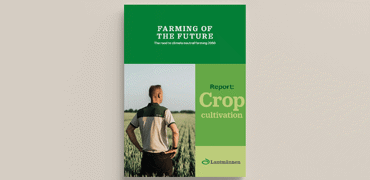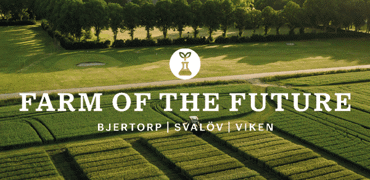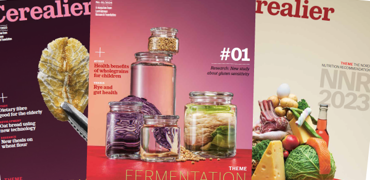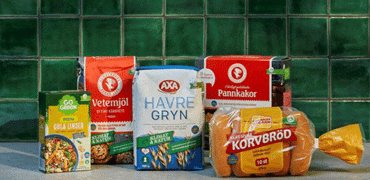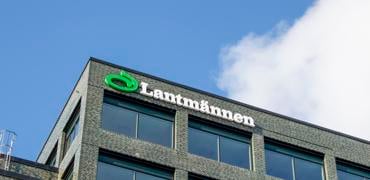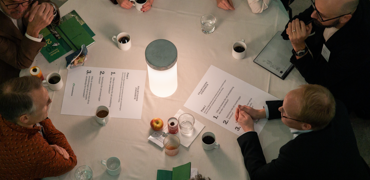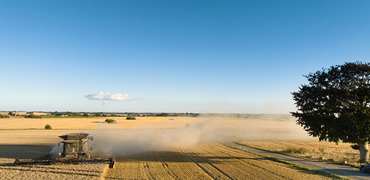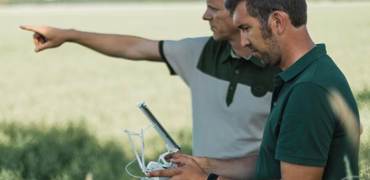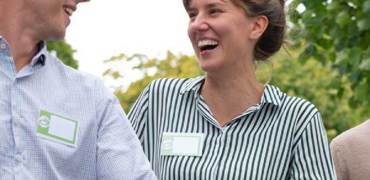Hi there Paula Hernandez, HR Manager at Swecon Construction Equipment!
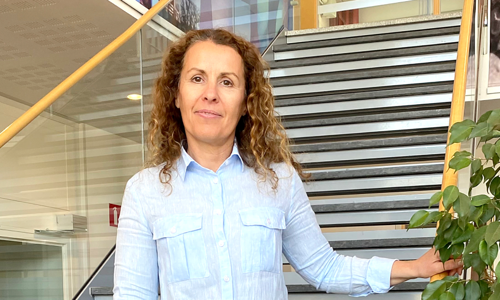
We have heard that you at Swecon have held various workshops on inclusion. Could you tell us more?
A: Originally, it all started with the fact that Swecon hadn't really worked that much with diversity and equality issues. We were contacted by the employers' organization Swedish Confederation of Transport Enterprises, who wanted us to be part of one of their projects, called “Framfart”. That project aims to broaden the transport industry's recruitment base and support the development towards industries with greater gender equality. We agreed because these issues are so big and important. It felt important for us that it should not be perceived as non-concrete and fluffy. We also felt that we internally lacked the right knowledge, and that we needed guidance on where to start and how to make the issues concrete.
We pretty quickly decided to arrange an internal event to start highlighting the issues. Together with the “My Life Foundation”, we organized a workshop for the managers focused on going over the plan and activities we had in mind.
![]()
It also felt important to have a dialogue with the managers and create an understanding that this is not an isolated HR issue, but one that needs to permeate all parts of the business – with our MD as the sender of the message.
A following activity was to arrange local workshops at the facilities in connection with the International Women's Day on March 8. These workshops were to be held by the respective site managers and at the head office by the MD and myself. Ahead of the workshops, a “train the trainer” event was held with all the managers who would facilitate the workshops. They were also given a tool kit with a presentation and a video highlighting gender equality and diversity both from a societal and company perspective.
The feedback showed that most employees got an eye-opener on these issues. Alongside that we served cake to celebrate the day, there were also good subsequent discussions on two main issues: One - What can we as a team and as a company gain from working with diversity and inclusion? And Two - How can we as a team become better at working with diversity and creating a more inclusive workplace? Many employees emphasized that the work environment is much better with a more even gender distribution, but also that profitability tends to improve with different perspectives and approaches. Prior to March 8, all women within Swecon could also volunteer to send in a picture for a collage to highlight and make visible the women we have within the company.
How was all this received?
A: I thought there would be some resistance, but that wasn’t the case at all. Everyone thought it was an important thing to do and welcomed the initiative. Many employees and managers had already realized that their workforce was very unbalanced – something that applies not only to us, but to the industry as such.
Why is inclusion important?
A: Inclusion is extremely important in terms of our competence supply. We find it difficult to recruit certain professions, for example service technicians, so we need to attract the few women that do exist. The second part is that the work environment is perceived as better for everyone with a more even distribution of gender. That aspect is very much about the psychosocial work environment, with many feeling that the jargon improves, and the workplace gets calmer with a more even gender distribution. That is very important. Of course, profitability will also be better with different perspectives contributing. Benchmarks show that profitability improves at a 60/40 distribution, regardless of whether there are more women or more men.
What are you doing to get more women to Swecon?
A: We have a lot of contact with schools to get girls interested at an early stage. I am also a member of the board of the Motor Industry College (MBC), with whom we have a close collaboration. Our managers around the country are also members of various schools' MBC councils, which provides them with good contacts within the different schools and can showcase as a local employer of interest.
Through the “Framfart” project that I mentioned earlier, we have also worked a lot on our employer branding – reviewing our ads in terms of image choice, tonality, choice of words, etc. There’s still a lot of potential to develop that area further. In recruitments, we also work a lot with so-called search to give ourselves as good a recruitment base as possible.
Already in our strategy is also the goal of increasing the number of female managers. Internal recruitment is important, but I also believe that we could recruit more broadly from other industries for white-collar workers, in order to recruit women from a different background. The industry is male dominated, so if we just search for people from the industry, we'll probably only get more men. Internally, we have started a network for female managers, and this fall we are starting a network for female service technicians. That network will be very much about how they experience the business and how we can attract more women. We also work with different indexes for us to be able to follow the development of gender equality over time and in relation to our own and other industries.
Have you experienced any changes since the workshops were held?
A: Absolutely! Inclusion and gender equality issues are clearly higher on the agenda. The managers have included it as a strategic topic in their management team meetings.
It has been very important to raise awkward or uncomfortable issues. One example is that some customers have not been satisfied with answers from our female employees but have instead asked for answers from the "men behind them."
We try to find good routines to support female employees in such situations and it is also important for our male employees to be aware of this to support their female colleagues in the best possible way. The hope is that more will come up to the surface.
In general, the awareness of the fact that we have an unbalanced workforce has increased. The general image of us is “an old man and a machine”, and women make up only 13 percent, so managers are proud when women are recruited. The next big thing is the diversity issue in general, as we also operate in a very Swedish industry. During the third quarter, we will launch an e-learning course in diversity and inclusion.
Finally, how do you feel about working in a male-dominated company?
A: With my experience from male-dominated industries and my South American heritage and rather fiery temperament, I am straightforward and can speak up. I'm not afraid to be different and I don't give up easily. The issue of diversity and equality is important for both the work environment and profitability, so we will keep going until we see the results we want!
RedLocker
In connection with the inclusion work, Swecon will equip its facilities with RedLocker, Europe's first vending machine for free menstrual products to make it easier for its female employees. RedLocker was founded five years ago as a fictitious school project at Nacka Gymnasium in Stockholm by two girls, then 19 years old. The girls came up with a solution for free menstrual products that they themselves wished had been available when they went to school or took part-time jobs. Today, their red vending machines can be found in more than 3000 locations across Europe, to prevent everyday problems such as makeshift toilet paper pads, interrupting work to find the nearest store, or even having to go home because of their menstruation.
Facts Paula Hernandez
Years with Lantmännen: 3 years
How come you applied for the job at Swecon? I actually wasn’t familiar with Swecon before I saw the vacancy, but I was working as HR Manager for the Nordic countries at Electrolux Professional in Stockholm – and since I live in Västerås, I was interested in a job closer to home. So, when the Swecon position in Eskilstuna was advertised I applied. The role itself of course also seemed very interesting.
The most fun part of your job? My role includes HR, internal communication, quality, environmental issues and work environment – and I really enjoy having such a broad role.
Favorite product: Finn Crisp is really good!
Hobbies: Working out at the gym, strength training and attending dance classes. I'm a former aerobics instructor and I like a good combination of cardio and strength training.
Fun fact: Paula is originally from Uruguay in South America and came to Sweden as a 19-year-old, in August 1991, since she had fallen in love with a Swedish guy two years earlier. 30 plus years later, they are still married!






